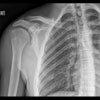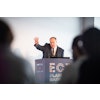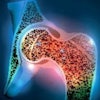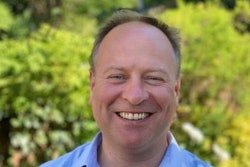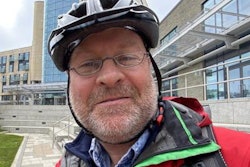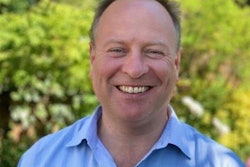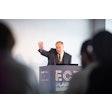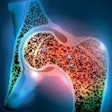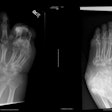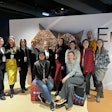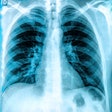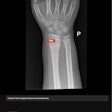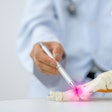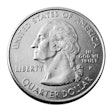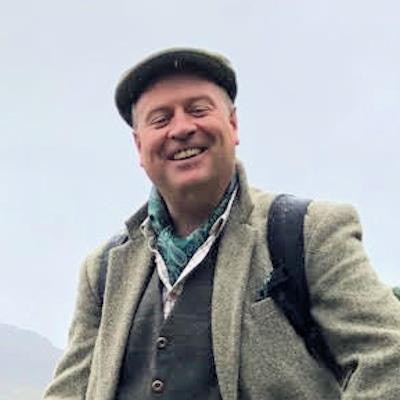
In recent years, I've realized that I've been doing things wrong. Not just as a radiologist but also as a human being. I thought I was up to date and doing the right things, but I wasn't. It wasn't that I've had my head in the sand; I am rampantly curious and very open to new ideas. Naturally, I'm intensely skeptical. Actually, battle-weariness may be closer to the truth.
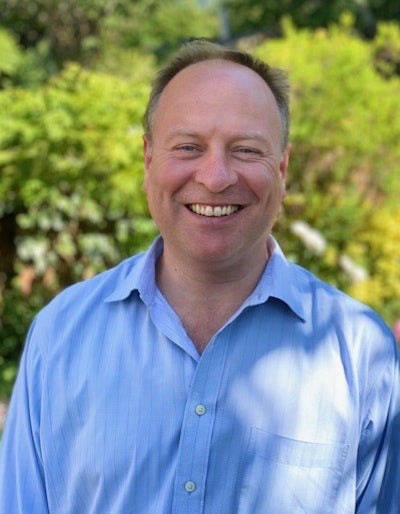 Dr. Paul McCoubrie from Bristol, U.K.
Dr. Paul McCoubrie from Bristol, U.K.It has been a slightly painful dawning realization. Several factors have contributed to my slow awakening. Partly, it has been discovering differing but compelling voices that have changed my mind. Partly, it is midlife introspection, peeling away the onion layers of my world view and finding some of the inner layers are unsavory. Partly, it has been lively friends and colleagues that have kept me on my toes. Partly, this has been my darling spouse and teenagers that consider it a devotional act to remind me of my flaws on a daily basis.
Some of my awakening has simply been due to listening. In recent years, I've been learning from those talking about kindness and compassion and those addressing injustice and inequality. Leaving your mind open to new concepts is crucial if you don't want to ossify. There is no point yearning for earlier, simpler times -- they don't exist, and that was merely our ignorance of their complexities. For me, it's a part of a life journey, seeking to be a wiser and better human being. The side effect is that you might just become a better radiologist too.
Just occasionally a realization is epiphanic. You learn something that is a metaphorical whack on the side of the head. Your previous assumptions, knowledge, or attitudes were way off. It is a "eureka" moment, both tremendously exciting and faintly disturbing.
Best type of brain jolt
The best sort of brain jolt is where an age-old notion is overturned. A concept that you hadn't thought to question, a self-evident fact, is suddenly turned upside down.
I'll give you a professional example. On day one of radiology school, we learned about the cardiothoracic ratio. We have subsequently dutifully measured it and included it on countless thousands of chest radiograph reports. But 102 years after it was first described, two papers show it to be useless, singularly lacking in sensitivity and specificity for actual cardiomegaly.1,2
Given that the evidence-base for much of radiological practice is tissue-paper thin, this made me think about what else that we do is frankly wrong. Probably much more than we care to admit. While debunking age-old assumptions is refreshing, it is galling to realize that we've been doing it wrong for over a century.
I have had innumerable nonprofessional moments where I have felt that the fog has suddenly lifted and I have seen something with utter clarity. These are "threshold concepts" -- an idea that, once grasped, leaves you transformed and unable to see the world in the same way.3
An example is when I first heard the phrase "You aren't throwing something away, you are just throwing it somewhere else." A lightbulb pinged on somewhere in my head. I'm now a ruthless recycler and an aspiring reuser and repairer. But I've felt guilty about every single black bin bag ever since.
The urgent need for real change
So what do we do with such personal transformations? What action do we take when armed with better information? Surely, it is all to no avail if we simply shrug and take no personal action?
We must encourage others to change their ways too. Admittedly, the cogs of the U.K. National Health Service (NHS) turn at a glacial pace, but it's relatively easy to get radiologists to change their habits. For example, it took several years, but relatively little persuasion, to change from barium enemas to CT colons, venograms to Dopplers, and intravenous urograms to CT urograms. We just needed different scanners and more staff.
It isn't so easy to get society and government to change. We are a long way from global enlightenment about reversing the harm we are inflicting on our planet. You don't have to be George Monbiot to realize that we have to change our ways and need to do so very rapidly. Witness the uncharacteristically direct action of climate-campaigning doctors who join Extinction Rebellion as part of their program of civil disobedience.
As a Yorkshireman, I get likened to a Scotsman with all the generosity taken out. But the inherent thriftiness of 5.4 million Yorkshire folk is now mainstream and relevant. Turning the heating down, reducing food waste, and methodically switching off unnecessary lights is no longer a childhood memory but very much in vogue. Commenting that "it's like Blackpool illuminations in here" is an optional but almost obligatory part of being a middle-aged parent.
We need more than personal action; we need systematic change.
I can say "if you are cold then put a jumper on" a million times, but when I see the hospital staff leave the lights blaring all night and the heating on full power during summer, then I know we can do better.
The volume of single-use, nonrecyclable plastic used by the NHS is preposterous -- most recently in the form of ridiculous volumes of plastic aprons and gloves that do nothing to combat a famously airborne virus. The NHS is waking up to sustainability, but it is way behind the curve.
We radiologists can raise our game. There are easy wins. For instance, why aren't all PACS workstations and lights turned off at the end of the day? Some are more challenging. Interventional radiology has a big waste problem; a single procedure generates at least one bin bag of plastic refuse. Catheters and other kit need longer shelf-lives, there is so much waste even with careful stock control. Our focus should be away from speed and power to efficiency and sustainability.
It is frustrating knowing that we are doing things wrong: knowing we could do better but feeling that the system isn't changing fast enough. Maybe it isn't so crazy to take extreme action. I might just glue my hands to a CT scanner tomorrow.
Dr. Paul McCoubrie is a consultant radiologist at Southmead Hospital in Bristol, U.K. Competing interests: None declared.
The comments and observations expressed herein do not necessarily reflect the opinions of AuntMinnieEurope.com, nor should they be construed as an endorsement or admonishment of any particular vendor, analyst, industry consultant, or consulting group.
References
- Simkus et al. Insights Imaging. 2021;12:158.
- Torres et al. CMAJ. 2021;44:E1683.
- McCoubrie P. Threshold concepts and the ha-ha effect. RCR Newsletter Spring. 2012;105:10.
